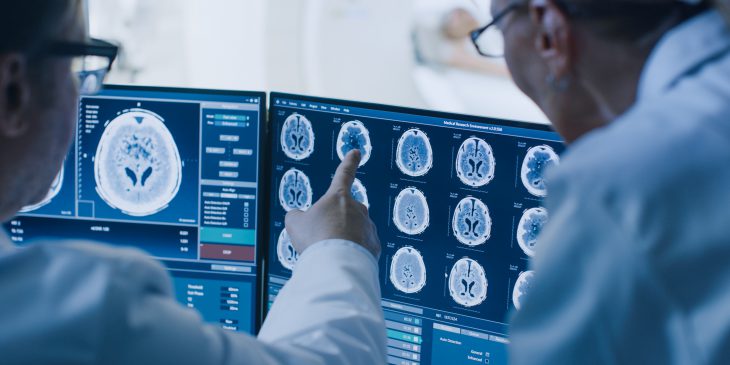Nearly 5 million people go to the emergency room for a traumatic brain injury (TBI) in the U.S. each year. Survivors of TBI may experience physical impairments and changes in emotional functioning, including personality changes or psychological symptoms. These effects can last days or be permanent, and are often worsened by misdiagnosis.
Earlier this week, Abbott Laboratories, a global health care company, received FDA clearance to market and sell the first rapid handheld TBI blood test. Based on years of research that involved University of Pittsburgh neuro-trauma experts, the test will run on Abbott’s handheld i-STAT Alinity platform, with results available within 15 minutes after plasma is placed in the test cartridge.

Dr. David Okonkwo
“This is a big moment that paves the way for having a quick test available wherever someone might need it after they suffer a head injury. You can easily imagine this being used one day at sporting events, in nursing homes, and in so many other places. I am confident that this will become a standard of care for traumatic brain injury evaluation and treatment,” said Dr. David Okonkwo, director of the Neurotrauma Clinical Trials Center at the University of Pittsburgh and a principal investigator in TRACK-TBI, an international TBI research consortium working with Abbott on this effort.
Okonkwo said using this device would eliminate the guesswork in diagnosing TBIs and helps clinicians determine the best treatment for the patient. He also noted that having a blood test available could reduce the number of unnecessary CT scans by up to 40%.
This test measures specific proteins in the blood after a TBI. A negative result can rule out the need for a head CT scan, a common tool used to diagnose a concussion. For those who test positive, the result complements CT scans to help clinicians evaluate whether someone has a TBI.
The TBI blood test was developed in collaboration with the U.S. Department of Defense (DoD) and TRACK-TBI. DoD, through U.S. Army Medical Research and Development Command’s U.S. Army Medical Materiel Development Activity, played a critical role in developing the test run on Abbott’s platform. The TRACK-TBI research team, with leadership from Okonkwo and Dr. Ava Puccio at the University of Pittsburgh, was the first to demonstrate how this TBI blood test can be used for the benefit of patients in clinical care.









